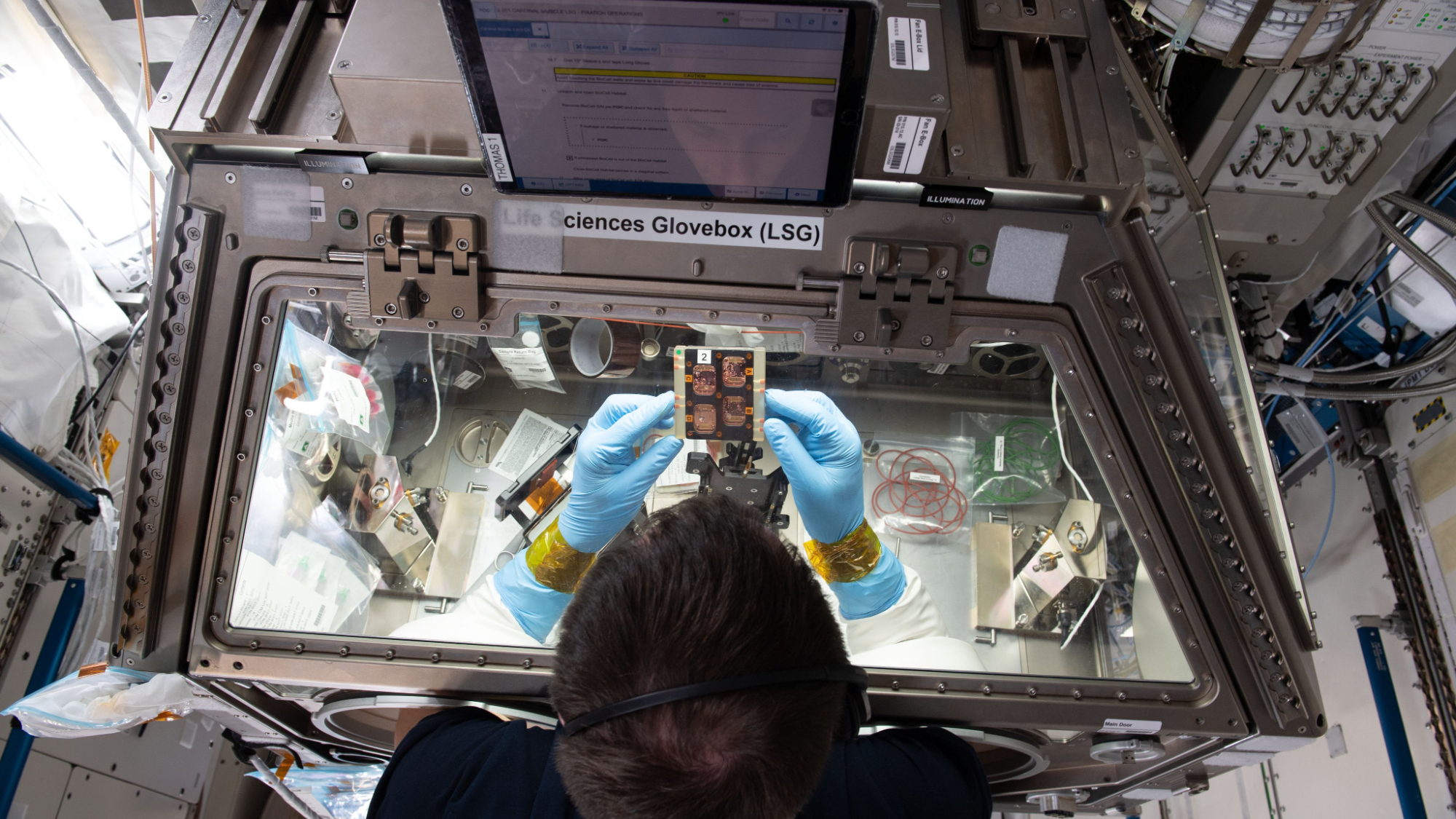
Astronauts experience significant muscle loss as a result of being in microgravity, but new drugs designed to create new muscle partially counteract this effect, new research shows.
The results have important implications for both long-duration space missions and the treatment of muscle loss on Earth, the study authors said.
Just a week in space accelerates muscle aging so much that astronauts' muscles resemble those of people with a condition called sarcopenia. This progressive decline in skeletal muscle takes decades to develop on Earth and typically affects older adults.
Astronauts' muscles weaken in space because they don't work as hard in space as they do under the incessant weight of Earth's gravity. Despite following high-intensity exercise regimens on the International Space Station (ISS) — including riding stationary bicycles, running on treadmills and lifting weights — astronauts lose 10% to 20% of their muscle mass, putting them at a higher risk of serious health issues.
Related: Astronauts on ISS can face muscle loss in microgravity — a new ESA experiment may help
"Space is a really unique environment that accelerates qualities associated with aging and also impairs many healthy processes," study co-author Ngan Huang, an associate professor at Stanford University, said in a statement. "As space travel becomes more common and available to civilians, it's important to understand what happens to our muscle in microgravity."
For the experimental study, the muscle "chips" — bioengineered packages of collagen strips arranged to mimic the structure of real muscles — were launched to the ISS, where astronauts performed a set of experiments over the course of a week. On Earth, Huang and her team performed the same experiments in parallel, which allowed the researchers to compare the muscles of astronauts in microgravity with muscles that age normally on Earth.
The team found that the space-traveling muscle showed metabolic changes that suggested its ability to regenerate was impaired. They also uncovered gene activity that's typically linked to sarcopenia: The genes related to mitochondrial function, the energy source for muscles, were compromised, while those associated with fat formation were amplified.
The findings highlight how microgravity impairs muscles' ability to repair and regenerate.
Preventing and treating muscle loss
Astronauts on the ISS also infused the "muscles on a chip" with two drugs meant to repair damaged muscle or treat sarcopenia. That treatment partially prevented the metabolic shift to fat formation and reduced some of the negative effects caused by microgravity, the researchers found. Further scrutiny of gene activity within the drug-treated muscles showed that they were more similar to normally aging muscles on Earth than to those left untreated in space.
The findings, published July 25 in the journal Stem Cell Reports, could also inform treatment on Earth.
"We think our research on muscle chips in microgravity may have broader implications on sarcopenia," Huang said in the statement. "Sarcopenia usually takes decades to develop on Earth, and we think that microgravity may have some ability to accelerate the disease process in orders of days."
With prolonged space missions and space tourism on the horizon, this is just one of several recent studies to investigate the effects of spaceflight on the human body.Last month, for instance, a battery of tests of four civilians who visited space in 2021 showed they had stressed immune systems and increased markers for bone and muscle loss, all of which returned to preflight levels upon their return to Earth. These rapid but short-lived effects could be detected in the space travelers' blood after only a few hours in orbit, the researchers found.
"We are getting closer to the point where we can almost measure the dose of space on the body," Christopher Mason, a professor of genomics, physiology and biophysics at Weill Cornell Medicine in New York City who led one of the studies, previously told Space.com.







